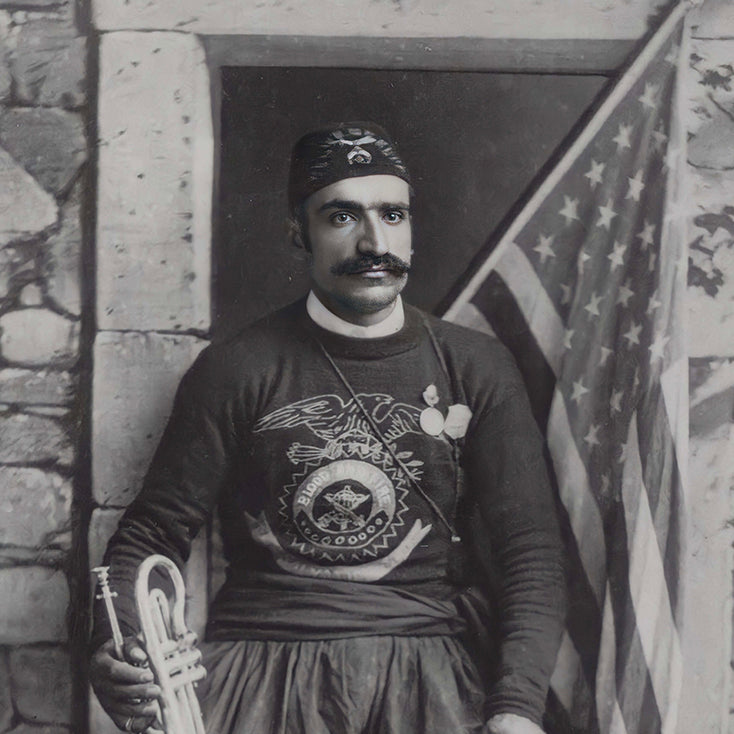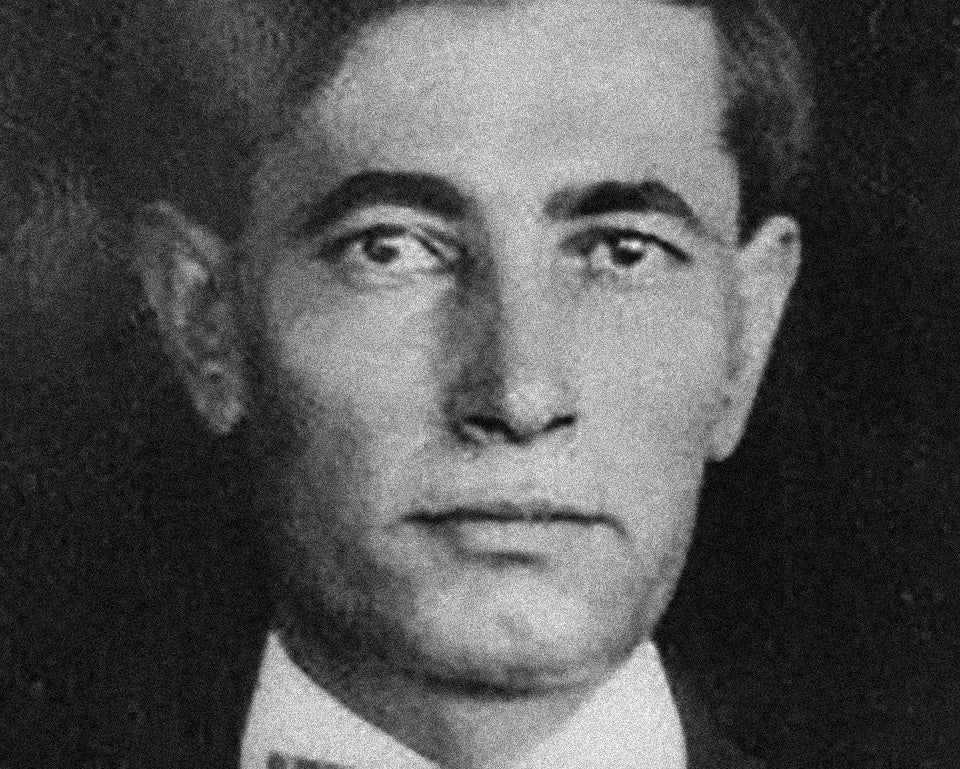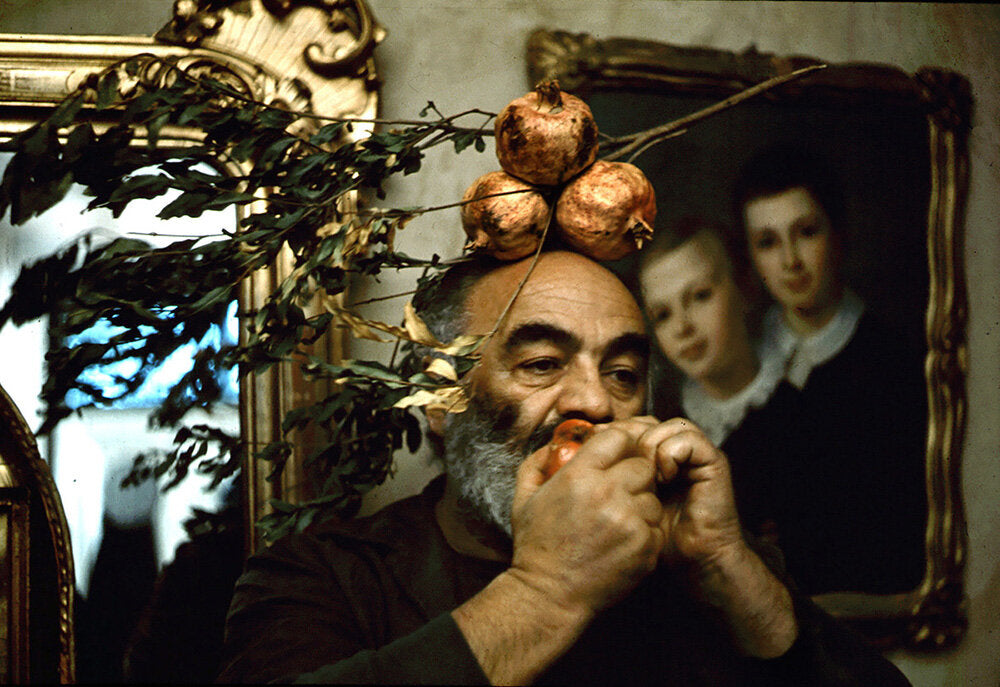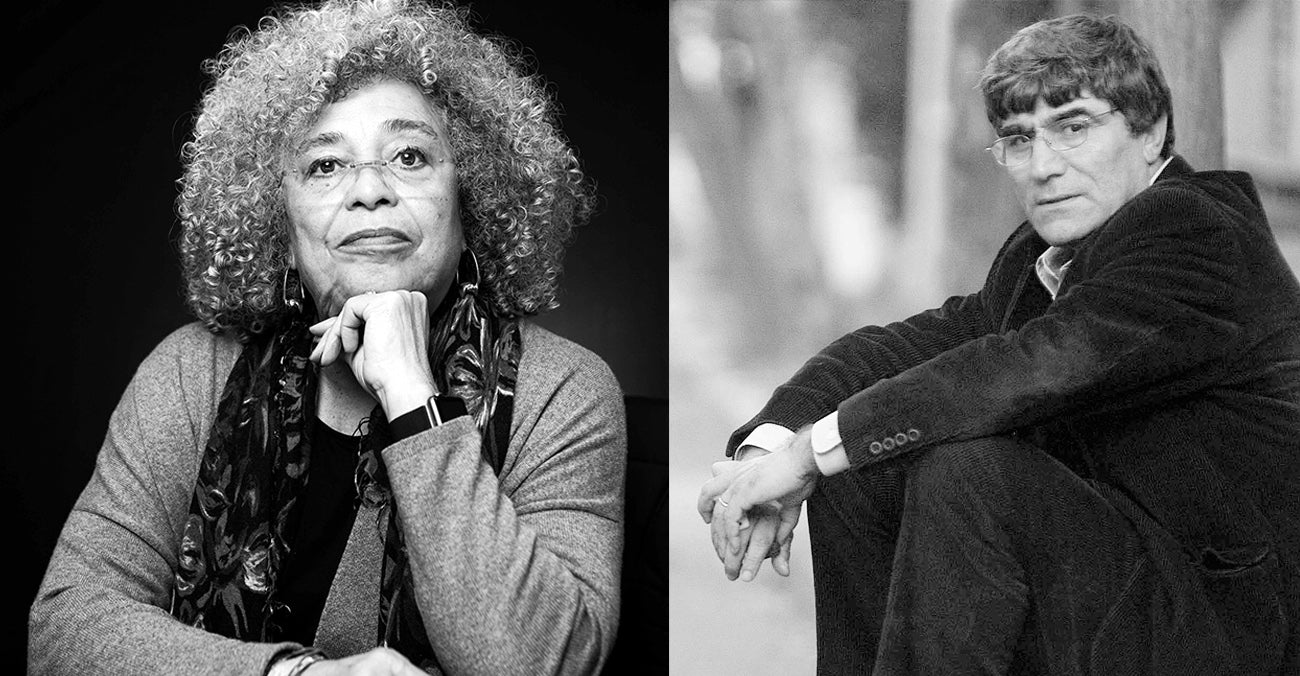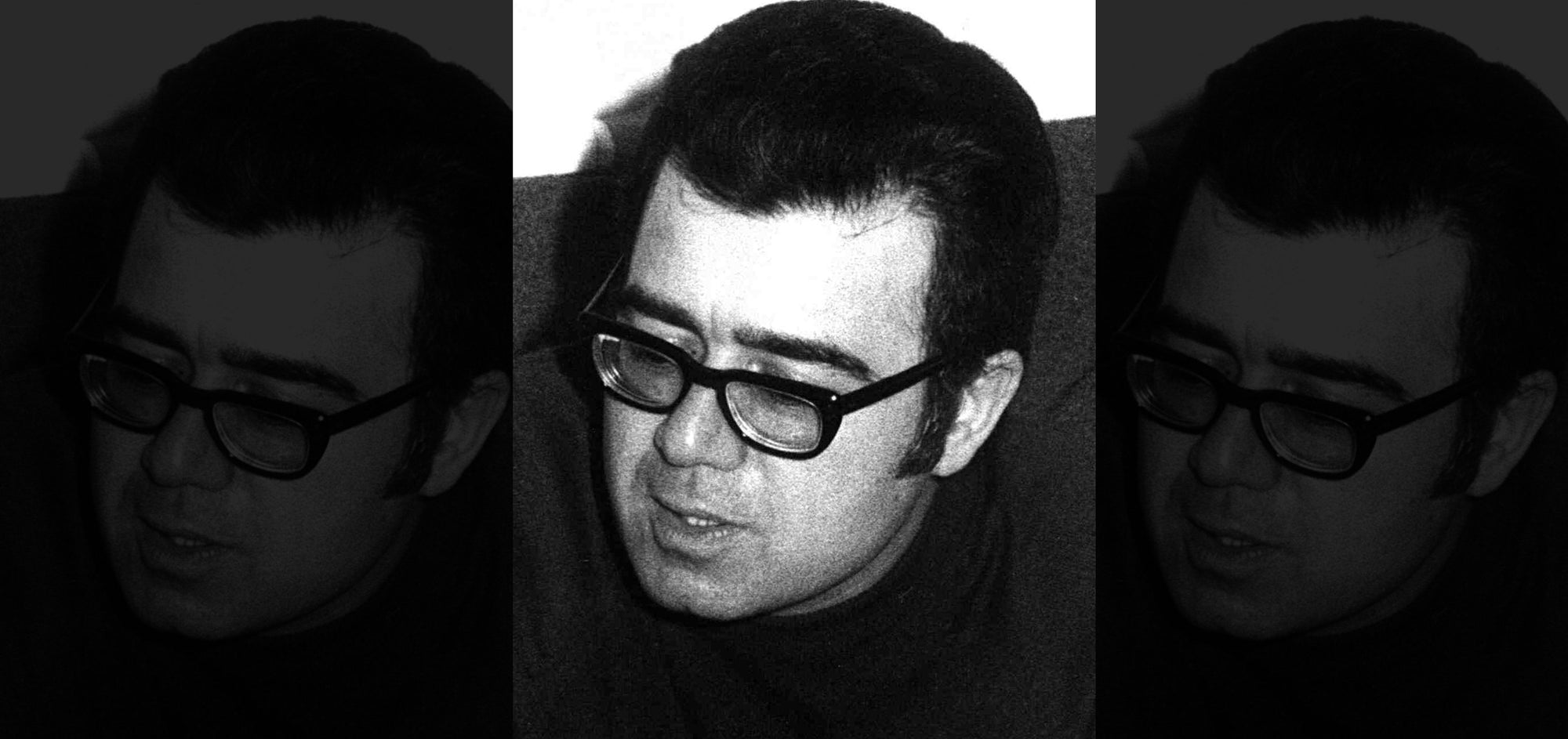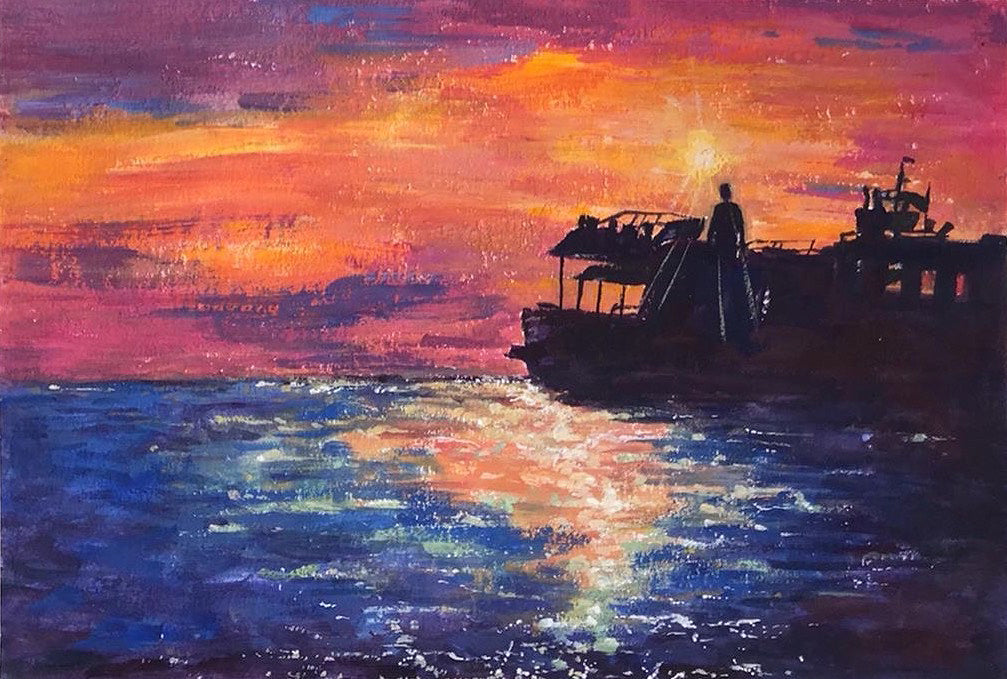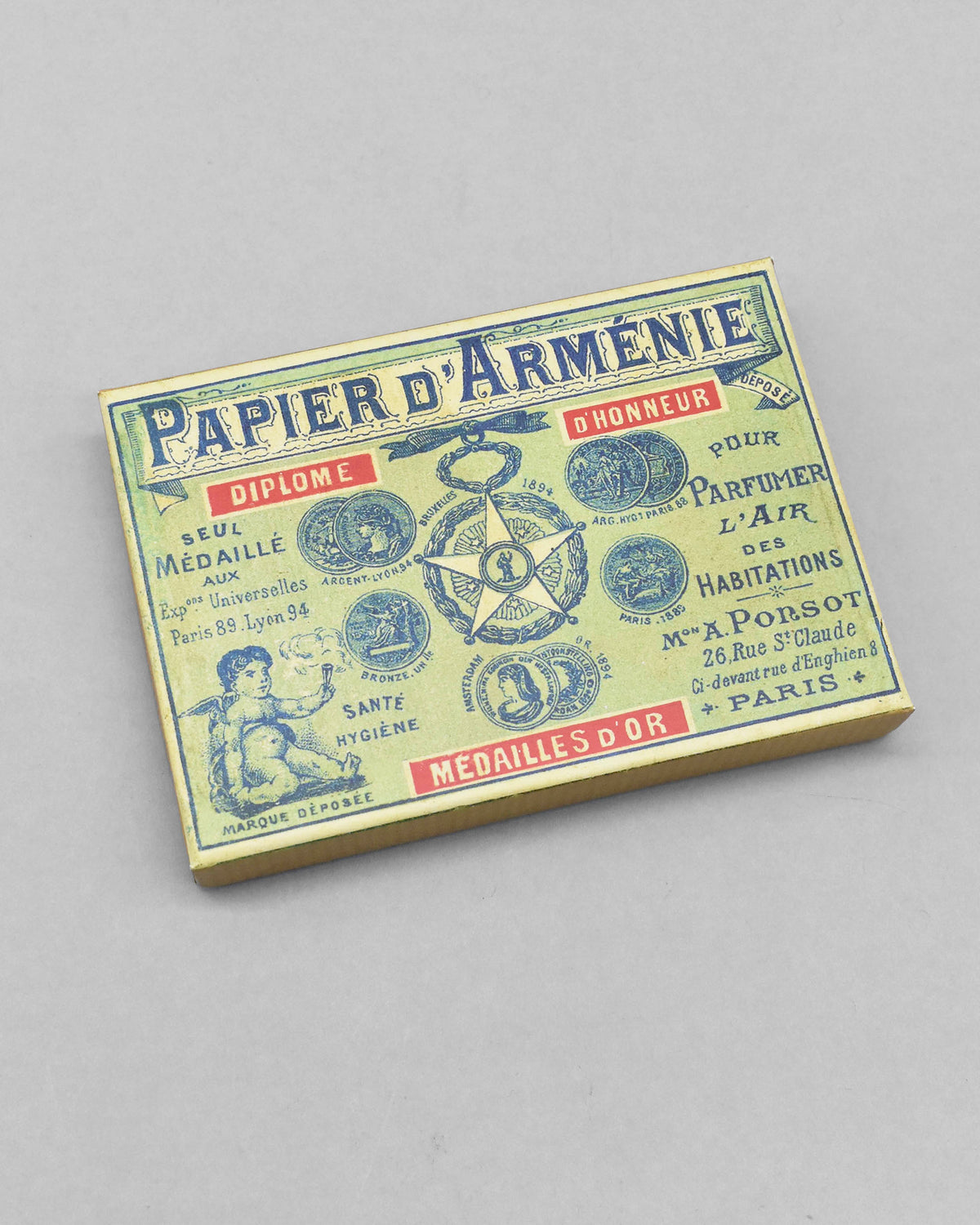If you're of Armenian descent and you haven't been living under a coffee cup, you've heard of The Promise - or at least the buzz surrounding the film.
By this point, you're either excited by the prospect of seeing it or sick of people talking about it.
No matter what you're thinking, here are a few reasons to contemplate before seeing The Promise when it hits theaters in the U.S. and Canada on April 21st.
1. All profits are going to charity

In a rare move, Survival Pictures, the production company created by Armenian-American businessman and philanthropist Kirk Kerkorian that produced and financed “The Promise” will be donating all proceeds from the theatrical run of the film to non-profit organizations.
Soundgarden’s Chris Cornell, who produced the title track for the film, will also be donating proceeds from the song to the International Rescue Committee, a global organization that aids refugees and people whose lives have been impacted by conflict and disaster.
The film's proceeds are slated to go to the Elton John AIDS Foundation (EJAF) as well as other human rights and humanitarian groups.
“The film’s theme #KeepThePromise can be interpreted as keeping the promise to remember and learn from the atrocities of the past, as well as keeping the promise to end AIDS,” Elton John recently told the Hollywood Reporter. “At EJAF, we are committed to #KeepThePromise and raise awareness about this powerful film that uses classic storytelling to inspire people to take action today.”
2. It was one of Kirk Kerkorian’s last wishes

Kirk Kerkorian’s life is the quintessential self-made, rags to riches story: born to a poor family of Armenian immigrants in Fresno, Calif., Kirk “Krikor” Kerkorian left school in the 8th grade and went from amateur boxer, to private pilot to businessman, eventually amassing a multibillion-dollar fortune and becoming an instrumental force and pioneer in developing the Las Vegas strip as we know it today.
Throughout his various business ventures, including building the world’s largest hotel several times over, investing in film production companies and claiming a stake in the American auto industry, Kerkorian gave over $1 billion in charity to Armenia through the Lincy Foundation helping to rebuild northern Armenia after the devastating 1988 Spitak earthquake, renovating cultural institutions and financing the highway connecting Armenia to Nagorno-Karabakh.
Creating Survival Pictures was in essence the last part of his robust legacy, a homage to his roots he wanted to leave to the world about a forgotten human rights crisis that flung survivors to all corners of the globe.
Producer Eric Esrailian is the man Kerkorian entrusted with his wish. Esrailian told an audience at the Toronto International Film Festival that The Promise took almost seven years to make.
“The film…really wouldn’t be possible if it wasn’t for Kirk,” Esrailian said. “We talked about the film as a concept for several years and he was overexcited about somebody doing it. During his life it was something that he was thinking about, and he put the ball into motion.”
3. It’s the first time a film about the Armenian Genocide has been successfully made for a mass audience

Let’s back up a few decades - this isn’t the first time a film has been made about the Armenian Genocide. There’s been “Ravished Armenia” (1919), “Ararat” (2002) and Fatih Akin’s “The Cut” (2014). There was also Elia Kazan’s classic, “America, America,” (1963) which depicted the journey Greek and Armenian Anatolians took to America in the backdrop of atrocities against them. But due to a number of reasons, including budget, execution, limited funds and meddling from Turkey (more on this later) these incarnations never reached their full cinematic potential.
The making of The Promise is important, because it’s the first time the Armenian Genocide has been depicted for such a mainstream audience on a wide scale.
Costing nearly $100 million to make and starring Christian Bale, Oscar Isaac of Star Wars fame, Iranian actress Shohreh Aghdashloo and French-Canadian actress Charlotte Le Bon (and several prominent actors of Armenian descent including Angela Safaryan, Kevork Malikyan and Roman Mitichyan) the film follows Kerkorian’s original, focused vision.
In an interview with Deadline, Esrailian talked about executing the film after Kerkorian passed away in 2015.
“We wanted a powerful story about our culture and heritage. He said to make it epic, to make sure it had a love story,” Esrailian recalled, adding that Kerkorian specified he wanted it to have leading actors and remind him of the films that people considered great when he was growing up.
Because of Turkey's continued denial of the Armenian Genocide and various business and political ties between America and Turkey, producing a film about the Armenian Genocide has always been a challenge in Hollywood. In the 1930s, MGM decided to produce an adaptation of the Franz Werfel novel, "The Forty Days of Musa Dagh," before the Turkish government pressured the movie studio to drop it. In more recent years, both Mel Gibson and Sylvester Stallone were tied to reviving it, though their efforts were also stalled by Turkish meddling.
The Promise itself has faced similar challenges. There were distribution issues, which the filmmakers and others like Atom Egoyan who made the 2002 film "Ararat" have linked to the "denialist lobby" being very well organized. The film's IMDb page fell under the attack of internet bots, receiving over 86,000 user votes for one-star ratings, despite the fact that the movie hadn't even been released yet.
4. The opening weekend’s box office sales are critical in securing a long theatrical run for this film and the continued impact it can have.

“The Promise” is being released in America and Canada on April 21st, just a few days before the worldwide annual commemoration of the Armenian Genocide on April 24th. Its performance during opening weekend will determine just how many people both in North America and the world see the film, and more importantly, learn about the horrors and aftermath of one of the 20th centuries first human rights disasters.
"A bad opening will usually kill a movie and kills all the potentials of the movie," says Bob Levin, the former president of worldwide marketing and distribution for MGM, adding that all the other things like television, home video and DVD that are tied to the release. "All those other revenue strings on a global basis are so driven by that success or failure in the domestic box office. And so that is driven by that opening. It becomes critical for the entire lifeline of the movie."
A 2009 study in the Journal of Academy of Business and Economics also determined that opening weekend box office revenue is not just an important source of income, but "a crucial preliminary indicator of long-run financial performance of a motion picture."
5. It highlights the connection to the kind of human rights abuses that are still continuing today.
The Armenian Genocide, or that of Assyrians and Greeks during the same time period doesn't exist in a vacuum. Over 100 years on, humans in various parts of the world have continued to experience immeasurable tragedy - from the Holocaust to the Rwandan, Bosnian, Cambodian and Guatemalan Genocides as well as war crimes and other crimes against humanity that have taken place in Sudan and Syria, where close to 500,000 people have died in the Syrian Civil War, which descendants of Armenian Genocide survivors have also been impacted by. There are now over 4.8 million Syrian refugees outside of Syria requiring humanitarian assistance.
Their stories, in many ways, mirrors the trauma that Armenians suffered a century ago. The film's producers have kept this connection in mind, as recently expressed in a letter by Esrailian.
"We hope to inspire people to take action to help those in the world today and to promote peace, love and tolerance in the world for people of all backgrounds," he wrote.
Esrailian also mentioned in a Deadline interview, that Kerkorian wanted to not just make a film, but help people too. "By making films that have this kind of social impact and them making sure the proceeds are donated to help others makes a second impact," he said.
The fact that The Promise has gotten this far - made possible by Kerkorian's initial vision - is in itself pioneering. It sets the wheels in motion for not just more people to learn about the events that changed the course of Armenian history forever, but to do more to stop them from happening again.



